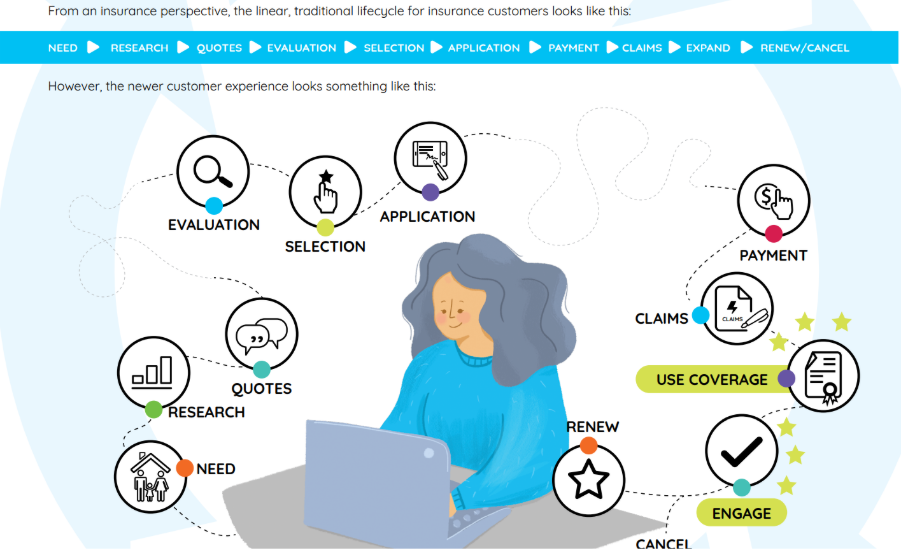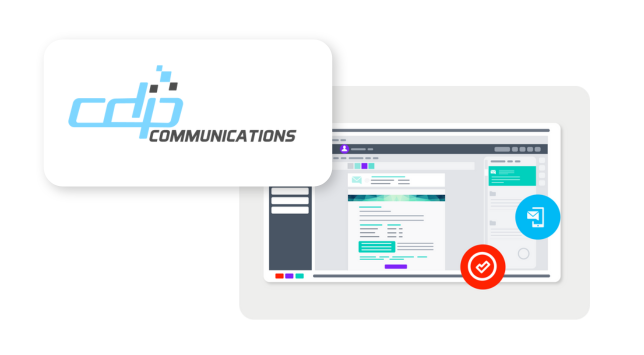
Proper document management and storage is one of the most important things a company can do to protect itself legally and financially. But the difference between what to keep and what to responsibly destroy is a delicate balance.
On the one hand, keeping accurate and well-organized records is not only a legal requirement but key for efficient operations. On the other hand, drowning in disorganized, out-of-date documents is inefficient and costly. How do you know what to do?
In this blog, we’ll explore the best practices for keeping organized AP records across the United States, Canada, the United Kingdom, France, and Australia. We’ll also explore how an automated AP solution can help you manage and maintain these best practices, no matter where your company is located.
Free Download: 5 Trends Set to Define Accounts Payable in 2025 [Access Now]

What are AP records?
AP records generally refer to financial documentation, including information about transactions, expenses and liabilities, purchase orders, receipts, invoices, and supplier, vendor, and service provider details. Exactly what is considered an AP record can vary depending on the nature of the business, industry, and applicable legal requirements. Here are a few key examples:
- Invoices: Original or electronic invoices received from suppliers or vendors for goods or services rendered, that provide details such as invoice numbers, dates, payment terms, and itemized charges.
- Purchase orders (POs): Documents authorizing the purchase of goods or services, including details like order numbers, descriptions, quantities, prices, and terms.
- Receipts: Proof of payment or acknowledgement of receipt for goods or services, usually issued by suppliers or vendors.
- Payment records: Documentation of payments made to suppliers or vendors, including copies of checks, bank transfers, wire transfer records, or electronic payment confirmations.
- Vendor or supplier information: Contact details, tax identification numbers, banking information, and any other relevant information about suppliers or vendors.
- Reconciliation statements: Records that reconcile invoices, purchase orders, and payments to ensure accuracy.
- Expense reports: Reports outlining expenses incurred, including supporting documentation like receipts and proof of approvals.
How do accurate and easy-to-find AP records help my business?
Maintaining AP records accurately and securely helps businesses ensure compliance, track financial transactions, and support decision-making processes.
Here are five key reasons why accurate and organized AP records are important:
- Financial compliance: Stay compliant with the rules and regulations of tax authorities, auditors, and government agencies, and increase your business’ transparency in its financial dealings.
- Audits and investigations: Documentation that supports the validity of transactions, expenses, and payments is crucial in the event of an audit or investigation, and can help protect you against potential penalties or legal repercussions.
- Expense tracking and budgeting: Identify spending patterns, track costs, and make informed decisions about budgeting, cost-cutting measures, and financial planning.
- Vendor and supplier management: Accurate information about vendors and suppliers, including payment terms, contracts, and communication history, can help you maintain effective vendor relationships, negotiate favorable terms, and resolve disputes or discrepancies.
- Cash flow management: Monitor payment schedules, due dates, and outstanding liabilities to develop effective cash flow management practices. Not only will you ensure payments are made on time and avoid late fees, but you could open up opportunities for vendor discount opportunities.
How long do I need to keep my AP records?
The answer to this question varies based on where you live, where your business operates, and the nature of the records. In the section below, we’ll outline the guidelines for:
United States
Businesses operating in the United States should keep paperwork like invoices for at least seven years. However, an organization's certified public accountant (CPA) might recommend some documents be kept indefinitely.
The Internal Revenue Service (IRS) states that the length of time that a business should keep a document “depends on the action, expense, or event which the document records. Generally, you must keep your records that support an item of income, deduction, or credit shown on your tax return until the period of limitations for that tax return runs out.”
In addition, the U.S. Chamber of Commerce states: "Document retention guidelines typically require businesses to store records for one, three, or seven years. In some cases, you will need to keep the records forever."
Canada
According to the official Government of Canada webpage, businesses must keep their records for a total of six years from the end of the last tax year the document applies to, with the tax year referring to the company’s fiscal period.
If you want to dispose of records before the end of the six-year period, you must get permission from the Canadian Revenue Agency (CRA). To submit a request, an authorized representative of the company must:
- Fill in Form T137, Request for Destruction of Records
- Apply in writing to your tax services office
It’s important to note that applying for permission doesn’t guarantee that your request will be granted. If you destroy your documents before you get permission, you could face prosecution.
United Kingdom
The United Kingdom (UK) requires companies to keep records for six years from the end of the last financial year to which they apply. Documents might have to be kept longer if:
- They show a transaction that covers more than one of the company's accounting periods
- The company has bought something that it expects to last more than 6 years, like equipment or machinery
- You sent your Company Tax Return in late
- HMRC has started a compliance check into your Company Tax Return
According to HM Revenue & Customs (HMRC): those not in compliance “can be fined £3,000 by HMRC or disqualified as a company director if they do not keep accounting records."
France
In France, the general rule is that companies must keep their AP records for at least 10 years. That includes documents such as customer or supplier invoices, purchase orders or delivery notes, accounting books and registers, and anything related to annual operations such as a balance sheet or income statements. These requirements are further explained in both the French Commercial Code (Code de commerce) and the French Tax Code (Code général des impôts).
The 10-year retention period starts from the end of the fiscal year to which the records relate and is applicable to both physical and electronic records. Violation of the 10-year retention period can result in fines of up to 10,000 EUR.
Australia
The length of time required to keep AP records in Australia varies based on the organization or government department. The two principal organizations and their guidance are:
- The Australian Taxation Office (ATO): Requires businesses to keep records on hand for at least 5 years from the date they are created.
- The Australian Securities and Investment Commission (ASIC): Requires businesses to keep certain records available for 7 years.
How does Accounts Payable automation help with electronic document management?
Storing paper documents can be time-consuming, expensive, and take up valuable office space. Paper document management is also risky. Paper records can be lost or damaged, and a simple mistake in filing can have serious repercussions during an audit.
An electronic document management (EDM) solution can help eliminate these concerns. In addition to saving money and physical file storage space, record digitization helps you feel secure that you’ll find the right documents, at crucial times, easily and efficiently. Electronic document storage solutions also empower accounting teams to share files across distributed locations, increasing transparency and facilitating accounting workflows.
A reliable, robust AP automation solution like Quadient Accounts Payable Automation by Beanworks offers the ability to store documents electronically — improving operational efficiency and enabling faster and more reliable document management.
Quadient AP’s digitized storage solution FileStore EDM enables organizations to search through digitized records by common information fields, such as vendor name, cost, or invoice number, to quickly and reliably find the file or data you’re looking for. FileStore EDM also offers audit modules, management alerts, and workflow integrations to keep documents secure and compliant to UK, European, and international legislative standards.
Are you ready to digitize?
Quadient AP can help ensure you’re storing your AP records accurately and efficiently; helping you meet and exceed compliance regulations while decreasing expensive physical storage costs.
With Quadient AP’s FileStore EDM solution, you can improve operational efficiency, enable faster data and file searches, easily share documents with distributed teams, reduce risk, and save physical office space. And since it integrates seamlessly with a wide range of applications and systems, such as Microsoft Office and SharePoint, and has off-the-shelf connectors for SAP, Oracle, SalesForce, PeopleSoft, and Sage, getting started has never been easier.








